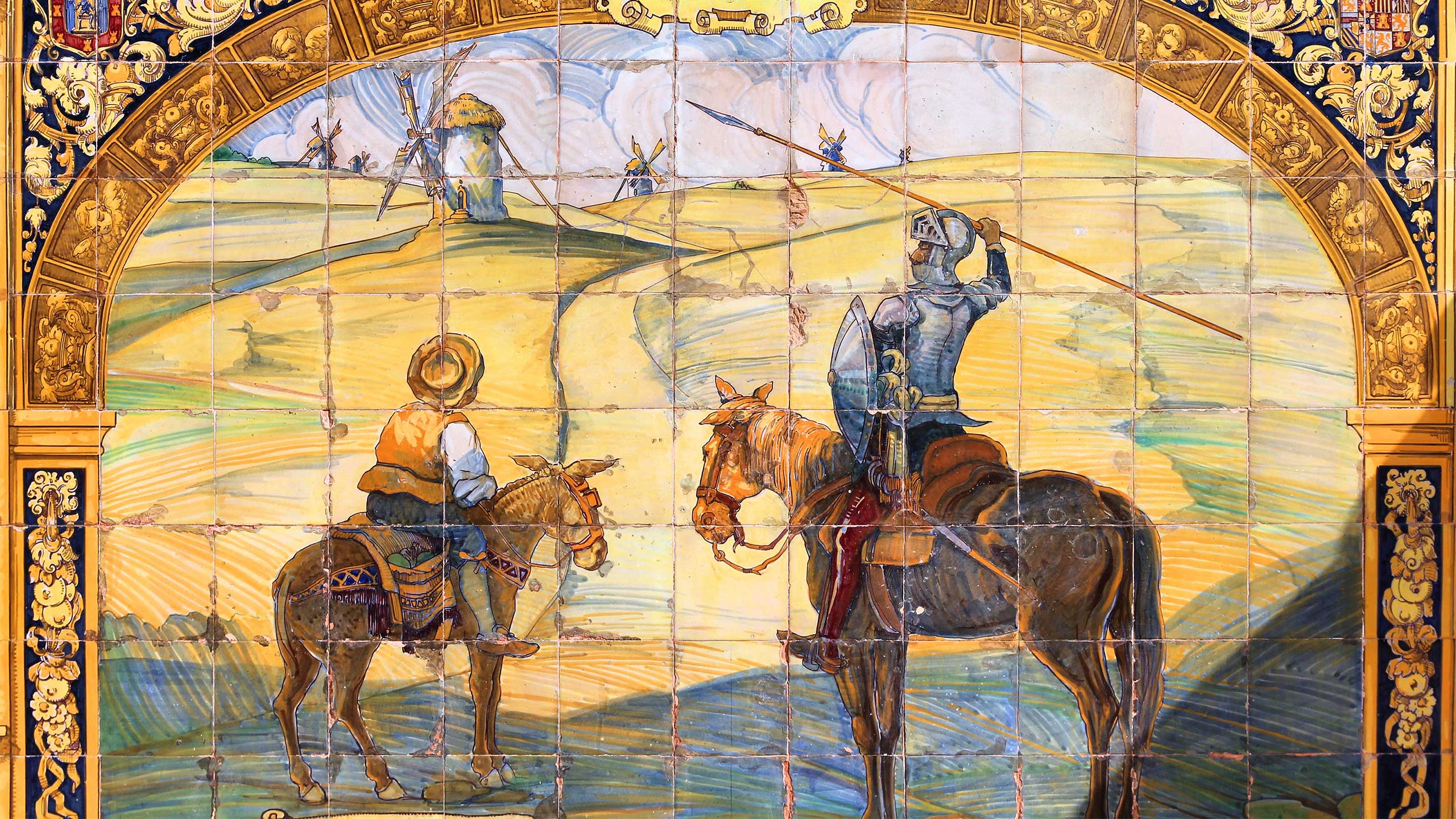For the Love of Language
Ana Laguna has shared her passion for Spanish history, literature, and culture with Rutgers–Camden students for over two decades

Ana Laguna sits on the national council of the Miguel de Cervantes Society of America, but as a teenager, she was “tired” of 17th-century author. He and his iconic literary creation, Don Quixote, were both indelibly linked to her hometown of La Mancha, Spain, and Laguna longed for something new.
When Laguna came to the United States to study comparative literature, she gained a different appreciation for Cervantes, reading his poems, short stories, and epic novels alongside the works of Shakespeare and Machiavelli. She realized Cervantes was one of the most prominent Spanish humanists of the 17th century, and that his challenges to patriarchy, social pressures, and political turmoil hold just as much weight today as they did hundreds of years ago.

Ana Laguna, professor of early modern Spanish literature
Ana Laguna, professor of early modern Spanish literature
“I draw inspiration from Cervantes and the principles of classic humanism from the 16th and 17th centuries,” Laguna said. “Understanding why the diverse, culturally rich society of this period succumbed to the inquisitorial demands of a dominant culture is critical to confronting similar threats today. To truly unravel and challenge the deep-seated biases of our world, it is useful to learn from those who formidably defied or defeated those social pressures and imperatives before.”
Laguna described the Spain of Cervantes’s time as a historically tolerant nation, the only society in the world where Islam, Judaism, and Christianity coexisted peacefully, albeit imperfectly. “All of that ended because there are always people who believe they have a privilege that should not be shared,” she said. “Deciding whether to embrace diversity or resist it is the main friction of society. The Inquisition was not just a conflict of religious differences, but of diverging visions for society.”
Although Laguna’s scholarship deals with weighty, often dark questions, she is firm in her belief that writing and language are powerful tools in the effort to educate and overcome. She always wanted to write and felt a pull to “leave the ivory tower behind” even while pursuing a life in academia. Her bilingualism proved an asset in breaking down those walls and creating access for others; as a doctoral student at Purdue University and during her postdoctoral studies at the University of Chicago, she volunteered as a medical interpreter for Spanish-speaking patients.

Laguna’s desire to help others and make education more accessible continued to radiate when she arrived at Rutgers–Camden in 2002. Although she has racked up a seemingly endless list of publications and awards—she recently won the Cervantes Society’s Murillo Article of the Year award and the Martin Stevens Award from the Medieval and Renaissance Drama Society—she does not to lose sight of her role as a teacher and a writer of curricula.
“My classes are punctuated with numerous ‘OMG’ moments,” said Laguna, who has designed three academic programs and over 40 courses at Rutgers–Camden. “Witnessing these realizations is the greatest reward for the countless hours I have spent designing and updating what I teach.” Laguna helmed the Master of Arts in Teaching Spanish program until 2017, and she created the award-winning Spanish for Health Professions program at the beginning of her Rutgers–Camden career. This program equips healthcare professionals to communicate effectively with Spanish-speaking patients, underscoring the transformative role a humanities-based education can play in addressing systemic disparities.
As much as Laguna is at home in the classroom, she is just as comfortable taking her students beyond its four walls. A course on cookbooks and Spanish culture that culminated in a trip to Spain remains a highlight of Laguna’s career.
“It was incredible!” Laguna said. “I invited the students—many of whom had Hispanic roots through Latin America—to explore Spain with curious minds and open hearts, to make the experience part of their story on their very own terms.”
The group travelled through Spain tracing and tasting the historical path that shaped the country’s hybrid culinary tradition. “We are what we eat and whom we choose to eat with," Laguna said. "Food is a major driver of inclusion and exclusion. As the saying goes, 'We don't need higher walls, but longer tables.’”
As one of Rutgers–Camden’s most decorated and longest tenured humanities professors, Laguna is determined to advocate for the study of language, literature, and history no matter where her next 40 courses may lead her.
"The impact of the humanities on our students cannot be overstated,” Laguna said. “It is our responsibility to champion and nurture them. If we neglect to do so, or if we fail to take them seriously, the joke is on us.”

Laguna and a group of Rutgers–Camden students in Seville, Spain (photo courtesy Ana Laguna)
Laguna and a group of Rutgers–Camden students in Seville, Spain (photo courtesy Ana Laguna)

Design: Douglas Shelton
Photography: Ron Downes Jr.
